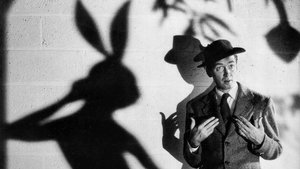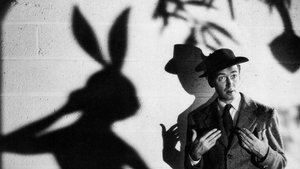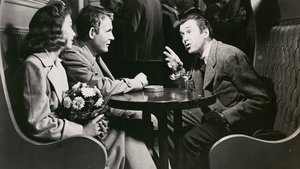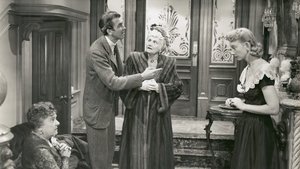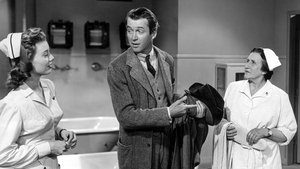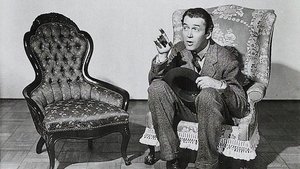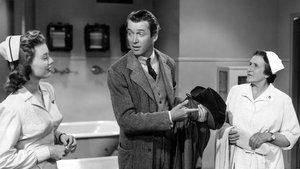Contact: [email protected]
Video Sources 0 Views
- Watch trailer
- Harvey

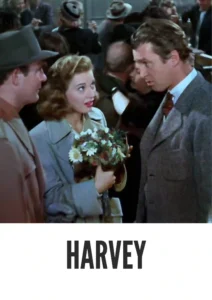
Synopsis
Table of Contents
ToggleReview: Harvey (1950) – A Whimsical and Heartwarming Tale

Introduction
Harvey, released in 1950, is a heartwarming comedy that has charmed audiences for decades with its whimsical storyline and endearing characters. Directed by Henry Koster, this beloved classic is renowned for its delightful humor, heartfelt performances, and timeless message of kindness and acceptance. In this review, we’ll delve into the enchanting world of Harvey and explore its enduring appeal in the realm of classic cinema.
Check The Full Colorized Movies List
Check Our Colorized Movies Trailer Channel
Understanding Harvey (1950): Director, Cast, and Genre
Directed by Henry Koster, Harvey boasts a talented cast led by James Stewart as Elwood P. Dowd, Josephine Hull as Veta Louise Simmons, and Peggy Dow as Miss Kelly. The film falls within the genre of comedy, characterized by its lighthearted tone, humorous situations, and feel-good themes.
Exploring the World of Harvey (1950): Plot and Characters
Set in a small town in the United States, Harvey tells the story of Elwood P. Dowd, a genial and eccentric man who claims to have an invisible six-foot-tall rabbit named Harvey as his best friend. Despite the skepticism of those around him, including his sister Veta Louise, Elwood’s unwavering belief in Harvey’s existence leads to a series of comic misunderstandings and heartfelt moments of human connection.
The Art of Film Colorization
While Harvey was originally filmed in black and white, its early colorized version adds a new layer of visual richness and depth to its whimsical aesthetic. The colorization process enhances the film’s vibrant sets and costumes, capturing the nostalgia of 1950s Americana with stunning clarity.
Early Colored Films: A Brief History
The history of early colored films is marked by innovation and experimentation as filmmakers sought to enhance the visual appeal of their movies. From hand-tinted frames to pioneering technicolor processes, the evolution of colorization techniques transformed the cinematic landscape, offering audiences a new way to experience classic stories and vibrant settings.
Harvey (1950) and Its Early Colored Version
The decision to release Harvey in a colorized format was made with the intention of immersing audiences in the whimsical world of the film and enhancing its visual appeal. While some purists may prefer the original black and white version, the early colorized edition of Harvey adds a new dimension to its nostalgic charm and captures the magic of its beloved characters and settings with stunning clarity.
The Debate Over Film Colorization
The debate over film colorization continues to divide audiences and industry professionals alike. While some argue that colorization breathes new life into classic films and makes them more accessible to modern audiences, others maintain that it compromises the artistic integrity of the original work. As technology advances and filmmaking techniques evolve, the debate over colorization remains a topic of ongoing discussion within the film community.
Examining Harvey (1950) as an Early Colored Film
Viewing Harvey in its early colorized iteration offers audiences a fresh perspective on its whimsical aesthetic and timeless humor. The colorization process enhances the film’s visual appeal and captures the nostalgia of 1950s Americana with stunning clarity. As Elwood P. Dowd embraces the joy and wonder of life with Harvey by his side, viewers are transported into a world of laughter and love that resonates with timeless warmth and charm.
Influence and Legacy: Harvey (1950)’s Impact on Cinema
Harvey is widely regarded as a classic example of the comedy genre that continues to enchant audiences with its whimsical storyline and endearing characters. Its enduring legacy has inspired generations of filmmakers and remains a beloved favorite among fans of classic Hollywood cinema. As a testament to its lasting appeal, Harvey remains a heartwarming tale of friendship and acceptance that continues to captivate and inspire audiences around the world.
Director’s Cinematic Legacy: Beyond Harvey (1950)
Henry Koster’s directorial legacy extends beyond Harvey, encompassing a diverse body of work in film and television. As a filmmaker, Koster was known for his ability to blend humor and heart in his storytelling, crafting memorable narratives that resonated with audiences of all ages. Harvey stands as a testament to his talent and creativity, solidifying his reputation as one of the great directors of classic Hollywood comedy.
Themes Explored in Harvey (1950)
At its core, Harvey explores themes of friendship, acceptance, and the power of imagination. Through its whimsical storyline and endearing characters, the film celebrates the joy of embracing life’s quirks and finding beauty in the unexpected. As Elwood P. Dowd and Harvey remind us, sometimes the most extraordinary things can be found in the simplest moments of everyday life.
Reception and Controversy Surrounding Harvey (1950)
Upon its release, Harvey received widespread critical acclaim for its delightful humor, heartfelt performances, and timeless message of kindness and acceptance. While the decision to release the film in a colorized format sparked debate among fans and critics alike, its enduring popularity has cemented its status as a beloved classic of American cinema.
Where to Watch Harvey (1950) Online
For those eager to experience Harvey for themselves, the film is readily available on popular streaming platforms such as Amazon Prime Video, Google Play Movies, and iTunes. Whether viewed in its original black and white format or its early colorized iteration, Harvey offers a heartwarming cinematic experience that is sure to delight audiences of all ages.
FAQs About Harvey (1950)
1. Is Harvey based on a true story?
No, Harvey is a fictional comedy that tells the story of Elwood P. Dowd and his imaginary friend, Harvey the rabbit. While the film’s premise may seem fantastical, its themes of friendship, acceptance, and the power of imagination resonate with universal truths about the human experience.
2. Who starred in Harvey?
Harvey stars James Stewart as Elwood P. Dowd, Josephine Hull as Veta Louise Simmons, and Peggy Dow as Miss Kelly. Their delightful performances bring warmth and humor to the film, capturing the whimsical spirit of this beloved comedy.
3. What is the central message of Harvey?
At its core, Harvey celebrates the joy of friendship, acceptance, and the power of imagination. Through its whimsical storyline and endearing characters, the film reminds viewers to embrace life’s quirks and find beauty in the unexpected.
4. Why was Harvey released in a colorized format?
The decision to release Harvey in a colorized format was made with the intention of enhancing the film’s visual appeal and capturing the nostalgia of 1950s Americana. While some purists may prefer the original black and white version, the early colorized edition of Harvey adds a new dimension to its whimsical charm and timeless humor.
5. What is the legacy of Harvey?
Harvey is widely regarded as a classic example of the comedy genre that continues to enchant audiences with its whimsical storyline and endearing characters. Its enduring legacy has inspired generations of filmmakers and remains a beloved favorite among fans of classic Hollywood cinema.
6. Are there any sequels or remakes of Harvey?
While there have been no official sequels or remakes of Harvey, the film’s enduring popularity has inspired countless adaptations and reinterpretations in various media. However, none have achieved the same level of charm and warmth as the original 1950 film.
7. Where can I watch Harvey online?
For those eager to experience Harvey for themselves, the film is readily available on popular streaming platforms such as Amazon Prime Video, Google Play Movies, and iTunes. Whether viewed in its original black and white format or its early colorized iteration, Harvey offers a heartwarming cinematic experience that is sure to delight audiences of all ages.
Conclusion
In conclusion, Harvey (1950) stands as a timeless classic that continues to enchant audiences with its whimsical humor, heartfelt performances, and timeless message of friendship and acceptance. Whether viewed in its original black and white format or its early colorized iteration, Henry Koster’s masterful direction and the delightful performances of the cast offer a cinematic experience that is both heartwarming and uplifting. As Elwood P. Dowd and Harvey remind us, sometimes the most extraordinary things can be found in the simplest moments of everyday life. With its enduring legacy and universal themes, Harvey remains a beloved favorite among fans of classic Hollywood cinema, continuing to captivate and inspire audiences around the world.
